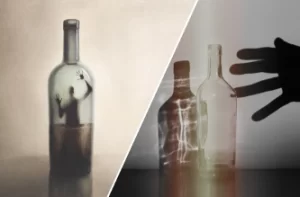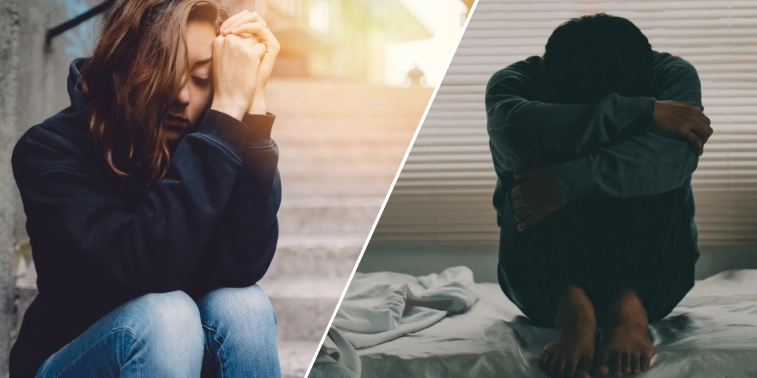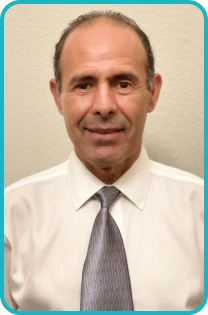
Myths and Facts about PTSD

In recent years, there has been an increase in awareness about Post-Traumatic Stress Disorder (PTSD), a mental health condition that can develop after experiencing or witnessing a traumatic event. However, with increased awareness also comes the risk of spreading misinformation and myths about this complex disorder. According to psychiatrists and mental health experts, it is crucial to have accurate information about PTSD in order to effectively address and support those who are living with this condition.
In this blog, we will debunk some of the most common myths surrounding PTSD and provide you with evidence-based facts to help you better understand this mental health condition.
Hold On! Before we do that, let’s take a look deeper look at “Is PTSD real?”
Is Post Traumatic Stress Disorder (PTSD) Real?
Post Traumatic Stress Disorder is a legitimate and diagnosable mental health condition. It is recognized by the Diagnostic and Statistical Manual of Mental Disorders (DSM-5), published by the American Psychiatric Association, as a trauma and stress-related disorder. This means that it meets specific diagnostic criteria, which include symptoms such as re-experiencing the traumatic event, avoidance, negative changes in beliefs and feelings, and hyperarousal.
Furthermore, research has shown that PTSD can physically alter the brain’s structure and function, making it a real and complex disorder. So, there is no doubt that PTSD is a very real and debilitating condition for those who are living with it.
Myths About PTSD
There are several misconceptions and myths surrounding PTSD, which can lead to misunderstanding and stigmatization. But the truth is, these myths are not supported by evidence and can be harmful to those who are struggling with the disorder. Here are some of the most common myths about PTSD:
1. Only soldiers get PTSD
While it is true that many soldiers develop PTSD due to the traumatic experiences they face in combat zones, this condition can affect anyone who has gone through a traumatic event. This could include victims of sexual assault, natural disasters, car accidents, and even those who have witnessed violence or abuse.
In fact, according to the National Center for PTSD, about 6 out of every 10 men and 5 out of every 10 women will experience at least one traumatic event in their lifetime. And out of those who experience a traumatic event, about 7-8% will develop PTSD.
As mentioned earlier, anyone who has gone through a traumatic experience can develop PTSD. This includes survivors of childhood abuse, domestic violence, accidents, and other forms of trauma. It is important to recognize that PTSD is not limited to those who have served in the military.
2. People with PTSD are Weak
This myth is harmful and often leads to individuals with PTSD feeling ashamed and stigmatized. The truth is experiencing trauma does not make a person weak. In fact, it takes great strength and resilience to cope with the symptoms of PTSD. Because this condition is often invisible, it can be easy to dismiss or belittle the experiences of those living with PTSD. However, it is important to remember that every person’s journey and experiences are unique, and there is no one way to cope with trauma.
3. If Someone Doesn't Have Flashbacks, They Don't Have PTSD
While flashbacks are a common symptom of PTSD, they are not a defining factor. Each individual experiences PTSD differently, and some may not have flashbacks at all. Other symptoms, such as avoidance and hyperarousal, are also significant indicators of the disorder. Additionally, flashbacks can manifest in different ways, such as nightmares or intrusive thoughts, and may not always be easily recognizable.
4. PTSD is Rare
According to the National Center for PTSD, about 8 million adults in the United States alone experience PTSD in any given year. This number is likely an underestimation, as many individuals do not seek treatment or go undiagnosed. PTSD is more common than people think. Just like any other mental illness, PTSD is not a sign of weakness. It is a complex disorder that can affect anyone at any time. Seeking treatment for PTSD takes courage and strength, not weakness.
5. Only Adults Can Have PTSD
Children and adolescents can also develop PTSD after experiencing or witnessing a traumatic event. In fact, it is estimated that around 15-43% of girls and 14-43% of boys will experience a traumatic event by the age of 18, which puts them at risk for developing PTSD. With proper support and treatment, children and young adults can learn to cope with their symptoms and overcome the challenges of living with PTSD.
Furthermore, research has shown that early intervention and treatment can greatly improve the chances of recovery. It is important to recognize that PTSD can affect anyone, regardless of age.
6. People with PTSD are Violent
There is no evidence to suggest that people with PTSD are more violent than those without the disorder. In fact, individuals with PTSD are more likely to harm themselves rather than others. This myth only serves to further stigmatize and isolate those living with this condition. It is important to understand that PTSD does not define a person, and their actions are not determined by their diagnosis.
Some people with PTSD may struggle with anger and irritability, but this does not mean they are violent. With the right treatment and support, individuals with PTSD can learn healthy coping mechanisms for managing their emotions.
Facts About PTSD
Now that we have debunked some of the common myths surrounding PTSD, let’s take a look at some evidence-based facts about this disorder.
PTSD is a Natural Reaction to Trauma
The symptoms of PTSD are not a sign of weakness or abnormality. They are natural reactions to overwhelming and traumatic experiences. When faced with danger or trauma, our bodies go into “fight, flight, or freeze” mode to protect us. However, in some cases, the brain does not recover from this response and can cause ongoing symptoms of PTSD. It is important to understand that PTSD is a natural reaction to an unnatural event.
Treatment for PTSD is Available
There are various effective treatments available for individuals with PTSD, including therapy, medication, and support groups. Seeking treatment can greatly improve an individual’s quality of life and help them learn healthy coping mechanisms for managing their symptoms. It is important to work with a mental health professional to find the right treatment plan for each individual’s unique needs.
PTSD Can Improve with Treatment
Many people believe that once someone has developed PTSD, they will struggle with it for the rest of their lives. While it is a chronic disorder, with proper treatment and support, individuals can learn to manage their symptoms and improve their quality of life. Recovery looks different for everyone, but with the right tools and resources, it is possible to live a fulfilling life after experiencing trauma.
PTSD Can Affect Physical Health
PTSD is not just a mental health condition; it can also have significant impacts on physical health. Research has shown that individuals with PTSD may be at a higher risk for developing chronic health conditions, such as heart disease and diabetes. This is due to the constant state of stress and hyperarousal that PTSD can cause. It is important for individuals with PTSD to prioritize their overall well-being and seek treatment for both their mental and physical health.
Support from Loved Ones is Crucial
Having a strong support system can greatly benefit individuals with PTSD. Understanding and supportive loved ones can help create a safe and validating environment for someone living with this disorder. Family and friends can also play an important role in encouraging their loved one to seek treatment and providing emotional support during the recovery process.
It is important to educate yourself on PTSD and be a source of compassion and understanding for those living with it.
PTSD is Not a Weakness
Living with PTSD takes immense strength and courage. It is not a sign of weakness but rather a reflection of the resilience and bravery of those who have survived trauma. It takes immense courage to seek help and work towards healing after experiencing such significant pain. Let us remember to show compassion and support for those living with PTSD and never underestimate their strength.
Overall, it is important to debunk myths and educate ourselves on the facts about PTSD. This will not only help reduce stigma but also promote understanding and support for those living with this disorder.
Remember, PTSD does not define a person, and with the right treatment and support, recovery is possible. Let us all be advocates for mental health and work towards creating a more inclusive and supportive society for all.
Final Thoughts
PTSD is a complex and often misunderstood disorder. Myths and misconceptions only serve to stigmatize further and isolate those living with it. It is important to educate ourselves and others about the facts of PTSD, as well as provide support and understanding for those who may be struggling. Remember, there is no shame in seeking treatment for PTSD, and recovery is possible with the right tools and support. Let’s work towards creating a more compassionate and informed society for those living with PTSD.
So, it is important to debunk these myths and spread accurate information about PTSD so that individuals can receive the understanding and support they deserve. Remember, together, we can break down the stigma surrounding mental health conditions like PTSD.

